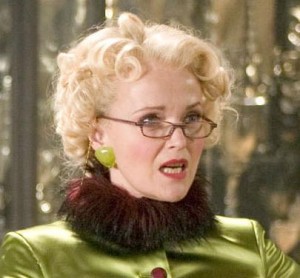Of course any press release with the words ‘Harry’ and ‘Potter’ next to each other in the headline is sure to catch the attention of journalists – and they struck gold last week with the announcement of an international academic conference, organised at the University of St Andrews, on the study of J.K. Rowling’s series ‘as literature’.
 The beautiful city of St Andrews… much better weather than when I was there!
The beautiful city of St Andrews… much better weather than when I was there!
Predictably, they found a couple of irate (and probably partly misquoted) academics from another office in the Ivory Tower, who expressed indignation at the squandering of thousands of Sickles and Galleons on such worthless endeavours.
I’d personally tend to think that in these dark days when studying the Arts & Humanities is getting more and more difficult for everyone, we should all stick together and support each other rather than deplore the fact that other academics are thinking about things that we think are not worth thinking about. But maybe that’s a very Potterish sort of altruistic attitude which you don’t cultivate if you spend all your time studying Ulysses. Ok, enough sarcasm.
I was there. The conference was a great success, because it managed to strike the right balance between true, heartfelt, endearing passion for the subject matter, and the respect, academic precision and intellectual rigour which such passion can lead to. I have to say I was a little bit worried about the potential geekiness of it all. As an unashamed potterhead, I’m more than happy to sport round glasses and hand-drawn scars at midnight releases – but that’s not what I want academic conferences to be like. Quantum physicists and Kantian scholars can make geeky jokes all they like and dress up as waves and particles if they want to – everyone takes them seriously anyway. But when your subject actually is a Mickey Mouse subject, you can’t afford to be self-deprecating about it. You have to defend it non-stop. You have to be as Sirius serious about it as it deserves.
And thankfully, despite a few Ravenclaw scarves and Gryffindor backpacks, the St Andrews conference did exactly that. Of all the presentations I went to, none were parochial, anecdotal, expected. Some were truly mind-blowing, and masterfully delivered: a jaw-dropping analysis of paternal atonement with the figure of Snape, a critique of pedagogical strategies in Hogwarts and their potential influence on the perception of learning and teaching by young readers, two sophisticated and subtle analyses of racial stereotyping using the representation of Goblins and House-Elves. In short, it was inspiring, rigorous, and not, as I’d feared, a self-indulgent gathering of fans marveling at Jo Rowling’s incontestable storytelling genius.
 If it makes people smile, that’s great – but I hope it also makes them think. It isn’t just careless, or uninformed, to dismiss the Harry Potter series as a serious object of analysis; it is intellectually dishonest. I’m sure – well, I hope – that in forty years’ time, when I nostalgically browse through my past blog posts stored in a chip directly implanted in my brain, I’ll laugh that such a conference was ever laughed at. Meanwhile, I look forward to the proceedings and thank the St Andrews people for organising such a successful event in spite of all the Rita Skeeters in the world.
If it makes people smile, that’s great – but I hope it also makes them think. It isn’t just careless, or uninformed, to dismiss the Harry Potter series as a serious object of analysis; it is intellectually dishonest. I’m sure – well, I hope – that in forty years’ time, when I nostalgically browse through my past blog posts stored in a chip directly implanted in my brain, I’ll laugh that such a conference was ever laughed at. Meanwhile, I look forward to the proceedings and thank the St Andrews people for organising such a successful event in spite of all the Rita Skeeters in the world.
Clem x
